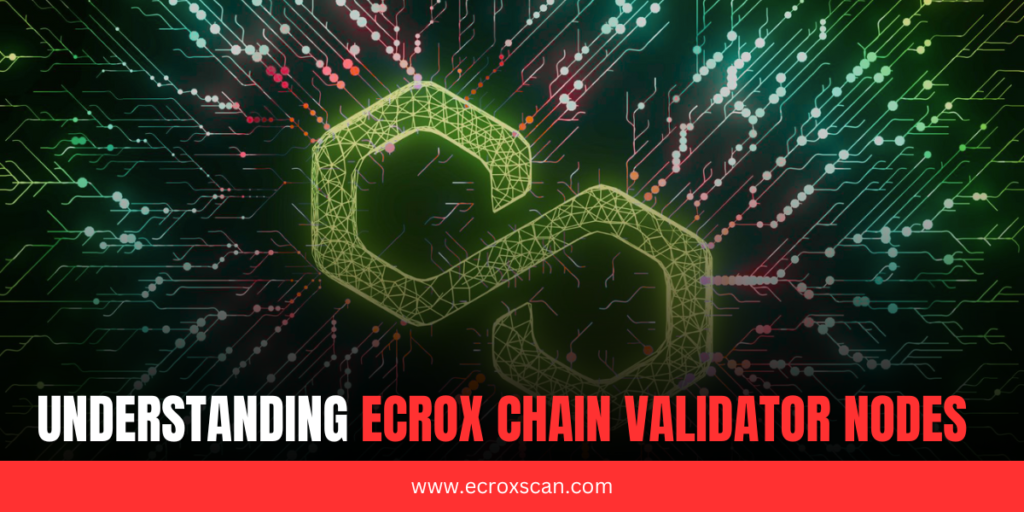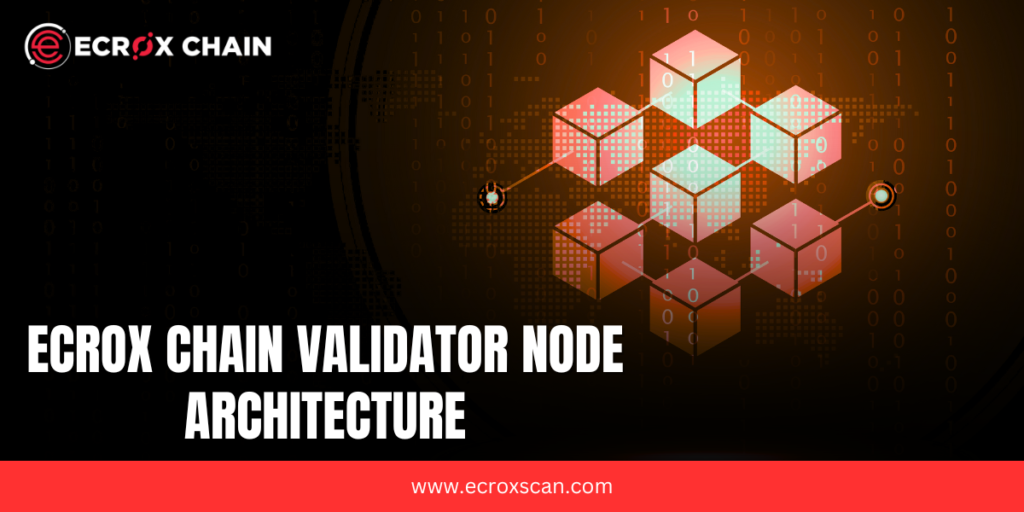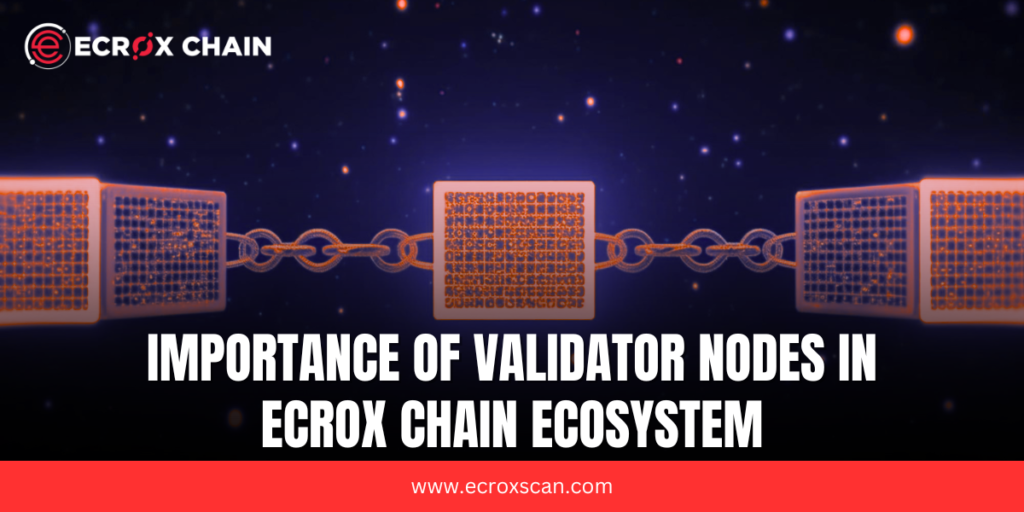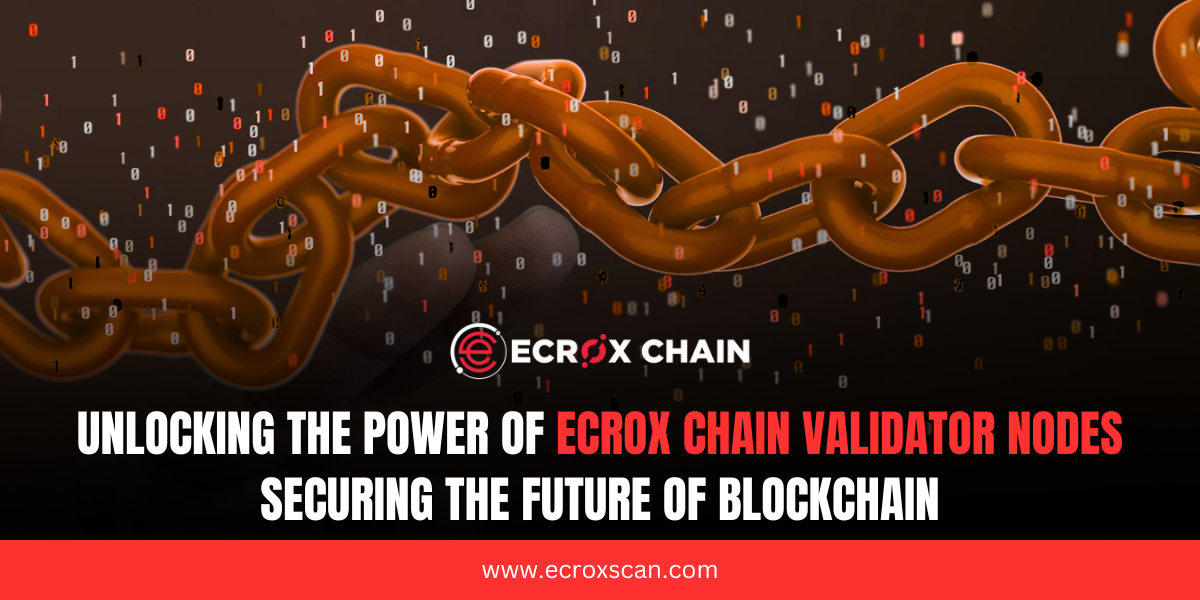In the ever-evolving landscape of blockchain technology, Ecrox Chain Validator Nodes stands out with its robust ecosystem and innovative approach to decentralization. Central to this ecosystem are the Validator Nodes, pivotal in maintaining the integrity and security of the network. This blog explores the significance of Ecrox Chain Validator Nodes, their role in consensus mechanisms, and how they contribute to the overall reliability and scalability of the blockchain platform.
Understanding Ecrox Chain Validator Nodes

What are Validator Nodes? Validator Nodes play a crucial role in validating transactions and maintaining consensus within the Ecrox Chain network. They are responsible for verifying the accuracy of transactions and ensuring that only valid transactions are added to the blockchain.
How do Validator Nodes Operate? Validator Nodes utilize a consensus mechanism, such as Proof of Stake (PoS) or Delegated Proof of Stake (DPoS), to achieve agreement on the state of the blockchain. This mechanism ensures that the network remains secure and resistant to malicious activities.
Benefits of Validator Nodes
- Enhanced Security: Validator Nodes contribute to the security of the network by validating transactions and protecting against double-spending and other fraudulent activities.
- Decentralization: Ecrox Chain promotes decentralization by allowing multiple Validator Nodes to participate in the consensus process, reducing the risk of a single point of failure.
- Scalability: With an efficient consensus mechanism, Validator Nodes help Ecrox Chain scale effectively, accommodating a growing number of transactions without compromising performance.
Ecrox Chain Validator Node Architecture

Technical Specifications Ecrox Chain Validator Nodes are designed to meet specific technical requirements, including hardware specifications and network connectivity. These nodes ensure optimal performance and reliability, supporting the seamless operation of the blockchain network.
Node Setup and Configuration Setting up a Validator Node on Ecrox Chain involves configuring the node software, establishing network connections, and participating in the consensus protocol. Validators need to stake a certain amount of Ecrox tokens as collateral to participate in the validation process.
Validator Node Roles Beyond transaction validation, Validator Nodes may also contribute to governance processes, such as voting on protocol upgrades and network proposals. This active participation fosters community engagement and decentralization.
Importance of Validator Nodes in Ecrox Chain Ecosystem

Ensuring Network Security Validator Nodes play a pivotal role in maintaining the integrity and security of Ecrox Chain. By validating transactions and reaching consensus, they prevent malicious actors from compromising the network.Supporting Decentralization Ecrox Chain embraces decentralization by allowing multiple Validator Nodes to participate in the consensus process. This distributed approach enhances network resilience and ensures democratic governance.
Promoting Efficiency and Scalability With efficient consensus mechanisms, Validator Nodes enable Ecrox Chain to process transactions quickly and scale as demand grows. This scalability is essential for supporting diverse applications and use cases on the blockchain platform.
Conclusion:
In conclusion, Ecrox Chain Validator Nodes are not just integral components of the blockchain’s infrastructure but also guardians of its integrity and efficiency. By leveraging advanced consensus mechanisms and promoting decentralization, these nodes uphold Ecrox Chain’s commitment to security, scalability, and community governance. As blockchain technology continues to evolve, Validator Nodes will remain pivotal in shaping the future of decentralized ecosystems worldwide.
FAQs:
Q: How can I become a Validator Node on Ecrox Chain? A: To become a Validator Node, you typically need to stake a certain amount of Ecrox tokens and meet specific technical requirements outlined by the network.
Q: What are the risks associated with running a Validator Node? A: Running a Validator Node involves risks such as potential slashing penalties for malicious behavior or network downtime. Validators must adhere to network rules and best practices to mitigate these risks.
Q: How do Validator Nodes contribute to blockchain scalability? A: Validator Nodes contribute to scalability by processing transactions efficiently and maintaining consensus on the blockchain, allowing Ecrox Chain to handle increased transaction volumes without compromising speed or security.


